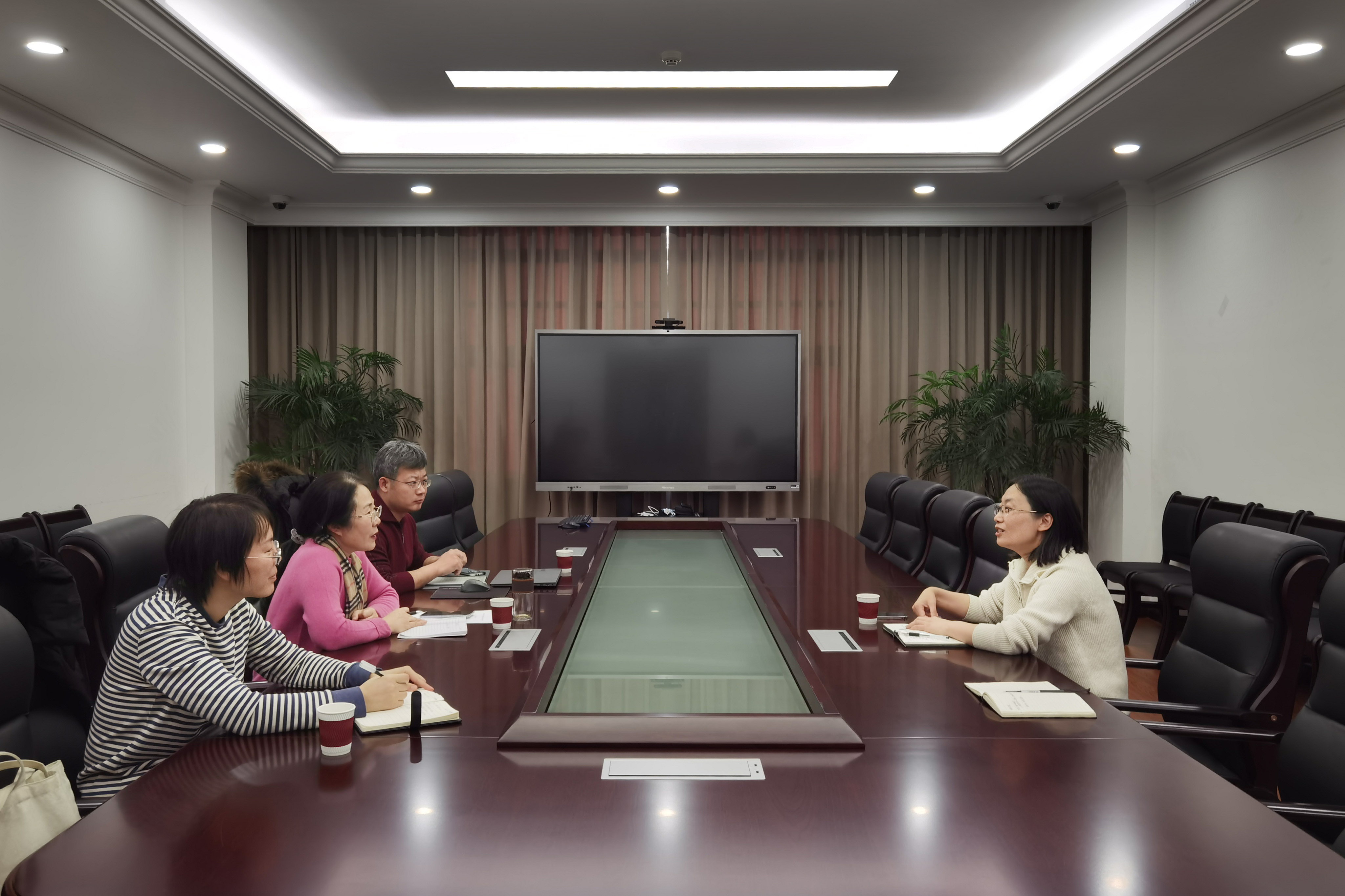Ma Ruiping, Secretary of the Party Committee of the School of Continuing Education, and Lin Kai, Deputy Director of Lifelong Learning Education Management Office, visited the School of Journalism and Communication for research and exchanges. Ma Changhong, Party Secretary of School of Journalism and Communication, received the guests at Xiushan Hall.

Ma Ruiping introduced the continuing education in Nankai University. The School of Continuing Education was established in 1986 and is an important window for cultivating talents and serving communities. It is also an important channel for building a lifelong education system and a learning-oriented society, and an important platform for fostering high-caliber officials. In 2009, Nankai University became one of the “first national university bases for official education and training” announced by the Organization Department of the CPC Central Committee and Ministry of Education. In 2013, the university became one of the professional and technical personnel continuing education base builders approved by the Ministry of Human Resources and Social Security. The Executive Development Program (EDP) Center is the educational institution of the School of Continuing Education for non-academic continuing education and training. Relying on the first-class discipline and faculty advantages of Nankai University, the center provides non- academic education and training for government departments of various levels, enterprises and public institutions, industry associations, and social organizations. At present, it mainly offers Party and government official training, training for enterprise managers, and continuing education for professional and technical personnel, training of industry practitioners as well as overseas study training programs. The School of Journalism and Communication has its own characteristics and a pool of abundant teaching resources. Ma Ruiping hopes they could cooperate in related fields and jointly speed up the development of the university's continuing education work.
Lin Kai introduced the policies, workflow, project types, hosting methods, and work requirements of non-academic education in the university. Non-academic education includes training for party and government officials commissioned by the government and public institutions, training for enterprise managers, as well as training for publicly enrolled trainees based on the characteristics of disciplines and majors. The non-academic education is open to a variety of target audiences and is highly autonomous in program setting. The School of Journalism and Communication can make more explorations based on its own characteristics.
Ma Changhong introduced the development of the School of Journalism and Communication since its establishment. Over the two years after its inception, remarkable progress has been made in discipline construction, faculty development and talent cultivation, thanks to the support of the university and various departments. The school is capable of offering courses for media literacy, news promotion, public opinion response, traditional culture, film and television aesthetics, and new media technology in terms of serving our communities and training. The school is not only dedicated to providing professional training for journalism and publication sector as needed, but also supplying high-end talents. Ma hopes to strengthen cooperation with the School of Continuing Education and Lifelong Learning Education Management Office in the future, so that both parties can leverage their strengths and make progress together.


